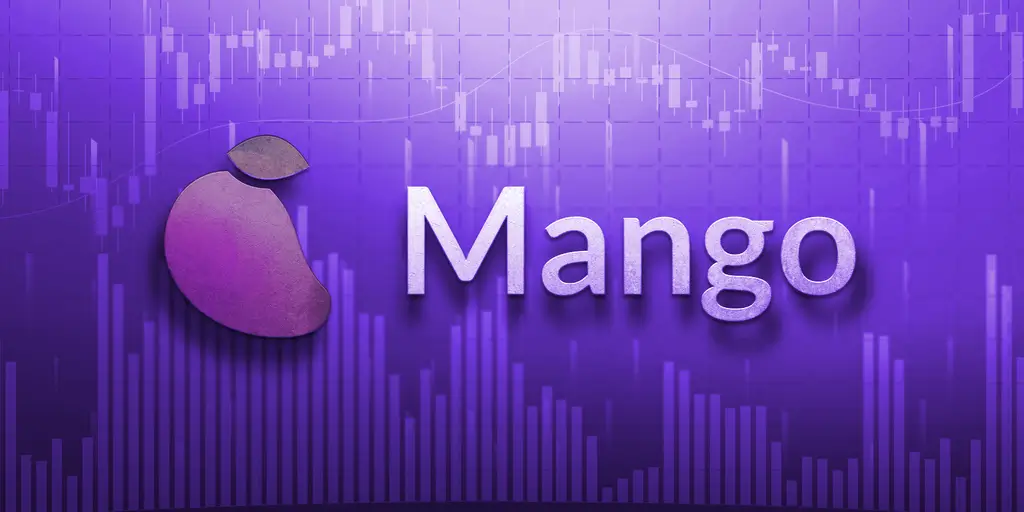Mango Markets Shuts Down Amid SEC Settlement and Internal Struggles
13.01.2025 12:00 1 min. read Alexander Stefanov
Decentralized exchange Mango Markets is shutting down operations following an SEC settlement that required the destruction of its MNGO tokens and their delisting from exchanges.
The announcement, shared on the platform’s X account, confirmed the wind-down of Mango v4 and Boost, citing the economic impracticality of maintaining borrowing services under new conditions.
Key changes to interest rates and collateral requirements aimed at discouraging borrowing will take effect on January 13, following unanimous approval by the platform’s governance process.
Mango Markets has faced a series of setbacks since its inception. In 2022, the platform suffered a $110 million exploit when Avraham “Avi” Eisenberg manipulated MNGO token prices. While Eisenberg referred to the incident as a “profitable trading strategy,” he was later convicted of fraud, though he continues to pursue a retrial.
In 2024, Mango faced further challenges, including an SEC lawsuit accusing it of selling unregistered securities and operating as an unregistered broker. The DAO ultimately settled, agreeing to comply with the regulator’s terms. The year also saw internal disputes, as key contributors clashed over locked MNGO tokens linked to the FTX estate, deepening the platform’s instability.
-
1
Here is Why the Fed May Cut Rates Earlier Than Expected, According to Goldman Sachs
08.07.2025 15:00 2 min. read -
2
What Brian Armstrong’s New Stats Reveal About Institutional Crypto Growth
29.06.2025 15:00 2 min. read -
3
Market Odds of a U.S. Recession in 2025 Drop in Half Since May
05.07.2025 18:30 2 min. read -
4
Vitalik Buterin Warns Digital ID Projects Could End Pseudonymity
29.06.2025 9:00 2 min. read -
5
Donald Trump Signs “One Big Beautiful Bill”: How It Can Reshape the Crypto Market
05.07.2025 9:56 2 min. read
BitGo Files Confidentially for IPO With SEC
BitGo Holdings, Inc. has taken a key step toward becoming a publicly traded company by confidentially submitting a draft registration statement on Form S-1 to the U.S. Securities and Exchange Commission (SEC).
Crypto Greed Index Stays Elevated for 9 Days — What it Signals Next?
The crypto market continues to flash bullish signals, with the CMC Fear & Greed Index holding at 67 despite a minor pullback from yesterday.
U.S. Public Pension Giant Boosts Palantir and Strategy Holdings in Q2
According to a report by Barron’s, the Ohio Public Employees Retirement System (OPERS) made notable adjustments to its portfolio in Q2 2025, significantly increasing exposure to Palantir and Strategy while cutting back on Lyft.
Key Crypto Events to Watch in the Next Months
As crypto markets gain momentum heading into the second half of 2025, a series of pivotal regulatory and macroeconomic events are poised to shape sentiment, liquidity, and price action across the space.
-
1
Here is Why the Fed May Cut Rates Earlier Than Expected, According to Goldman Sachs
08.07.2025 15:00 2 min. read -
2
What Brian Armstrong’s New Stats Reveal About Institutional Crypto Growth
29.06.2025 15:00 2 min. read -
3
Market Odds of a U.S. Recession in 2025 Drop in Half Since May
05.07.2025 18:30 2 min. read -
4
Vitalik Buterin Warns Digital ID Projects Could End Pseudonymity
29.06.2025 9:00 2 min. read -
5
Donald Trump Signs “One Big Beautiful Bill”: How It Can Reshape the Crypto Market
05.07.2025 9:56 2 min. read


